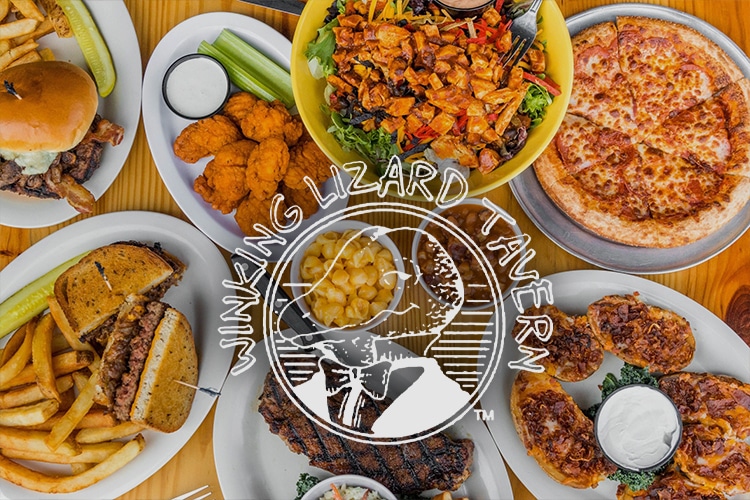As a restaurant owner or operator, you’re no doubt feeling the effects of the coronavirus. Federal, state and local agencies, as well as public health experts, are urging people to avoid crowds and advising high-risk individuals to stay home altogether.
According to restaurant industry research group Technomic, one-third of Americans say they plan to stick closer to home and dine at restaurants less frequently due to fear of the spread of the virus, also known as COVID-19.
In an unprecedented turn of events, the NBA and NHL have suspended the remainder of their seasons and MLB has suspended spring training and will almost certainly delay the start of the 2020 regular season. And, with those announcements, bars and restaurants surrounding NBA, NHL and MLB venues are bracing for the impact the cancelled games will have on their businesses.
Throughout the country, trade show and conference organizers are assessing whether their events should be postponed or cancelled. One such event, Natural Products Expo West, a natural and organic foods conference that usually draws about 85,000 people, was set to take place at the Anaheim Convention Center Tuesday, March 3, and run through Saturday, March 7. But after 200 vendors pulled out of the event, organizers announced that the expo would be postponed to a yet-to-be determined date.
The postponement of the conference had a ripple effect on the local economy, especially the neighboring hotels and restaurants. One restaurant owner had booked capacity reservations for all four nights and ordered enough prime rib to accommodate the expected influx of customers. When the event was postponed, he called his friend – a morning radio host at a large Los Angeles radio station – and with the free announcement on the radio that he was offering specials on prime rib due to the event cancellation, he was able to replace the conference attendees with local customers.
Other restaurants in the area were not so fortunate. Based on their forecasts for that week, they ordered food and beverages for the throngs of expected customers, who in their case, never came.
9 Tips to Help Your Restaurant Through the Coronavirus Outbreak
As a restaurant owner or operator, you are already addressing food safety protocols and best practices. The tips below are focused on helping you address the business impact of the current uncertainty.
1. Reforecast your sales
Start with your existing forecast. See how far off your current sales are from what you projected. Keep current on the news of the coronavirus and adjust your forecasted sales accordingly. Use these past few weeks’ sales as a guide, rather than forecast from the same period sales last year.
2. Adjust your ordering
Run your stock usage report for inventory turns. For upcoming orders, order only what you expect to sell based on your revised sales forecast. For food and beverages you’ve already ordered but not yet received, work with your vendors to lower your quantities.
3. Adjust your staffing schedule
Use your sales forecasts and your custom labor model to get the suggested amount of labor for each day. Automate your scheduling and do so strategically based on updated knowledge.
4. Actively manage labor cost
Make adjustments to stay close to optimal labor, regardless of scheduled labor by using tools such as breaks and cuts.
5. Tag your daily sales summary
Tag these slow sales days in your DSS with a ‘virus’ note. Documenting these dips and trends with detailed notes and information will be useful next year when things are back to normal. You can easily discard these days so that you are spot on with next year’s forecast.
6. Deal with your current reality
As a restaurant owner or operator, use your own experience and knowledge to recognize that this is most likely a temporary situation, but one that you must address head on. Lead by example as your employees are feeling the uncertainty. Use the bulletin system that goes directly to all employees via mobile app to keep employees updated on the restaurant status.
7. Promote online ordering and delivery
The uncertainty surrounding the coronavirus is further igniting the appeal of restaurant delivery. If you’re experiencing a slowdown of dine-in customers and your forecast has not yet caught up, consider promoting delivery to reduce your standing inventory. Take advantage of email lists, your loyalty program and promotional discounts online to spur takeout and delivery sales.
8. Make good use of over-ordering
If you find yourself with an overabundance of food at the moment based on the unforeseen downturn in business, consider donating it to a local food bank. Restaurant365 partners with Second Harvest Food Bank in Irvine and Central Texas Food Bank in Austin for staff volunteer events. Feeding America has a local food bank in your community.
9. Be prepared for the upturn
If your restaurant relies heavily on trade show business, you’ll have to be prepared when those cancelled events are rescheduled. Your forecast should take into account your sales during the week of the same event last year, then adjusted for the season. For example, if a specific trade show is usually held in January during your slow period, then is rescheduled to June when you normally experience brisk sales, you’ll need to compare week-over-week sales for the week in January when the show normally takes place and add the increase in sales due to trade show customers to your June forecast for the week of the rescheduled trade show.
Even if you don’t rely on trade show business, be prepared for the upturn in business as the effects of the coronavirus subside. Continue to run your stock usage report for inventory turns and keep tabs on upward usage trends. Update your forecast weekly to ensure that when your sales rebound you’re ready to provide an excellent customer experience in terms of inventory on hand and sufficient labor to cover all day parts.



